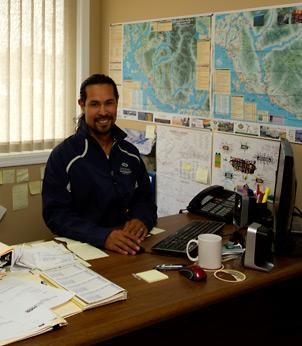This article has been updated to correct an inaccuracy.
Implementation of a new tax collected by certain accommodation providers has caused discord among some in Powell River’s tourism industry.
Called the Municipal and Regional District Tax (MRDT), the tax will impose a two per cent additional fee on customers of accommodation providers with four or more rooms.
Money gathered would go through the provincial government and be returned to Sunshine Coast Tourism, the regional destination marketing organization of which Tourism Powell River is a part, and redistributed throughout the area. The tax is projected to raise $250,000 in total. Seventy-five per cent of the funds will go to Sunshine Coast Tourism's marketing budget and 25 per cent will go into a community projects fund which local groups in the area can apply to.
Paul Kamon, marketing director at Tourism Powell River, said he believes the MRDT is the best move Powell River can make. So far, a mixture of grants, government funds and membership fees have enabled Sunshine Coast Tourism to function, “but not at a high level,” explained Kamon, “and to compete at that higher level...we need more funds.”
Though the economic downturn is generally a disadvantage for tourism providers, Kamon said it’s the best time to advertise. “That’s when you do the most important marketing,” he said. “It seems counter-intuitive, [but] when times are tough, that’s when a lot of marketing budgets get pulled back which creates opportunity for others to jump into that opening.”
To ameliorate the effect of the tax, Sunshine Coast Tourism will be waiving the membership fees for contributing accommodators, said Kamon. “When you look at business expenses, they’re actually getting a break since the tax is paid by consumers.”
Though the application for the tax, which has a requested implementation date of January 1, 2013, has already been sent to the provincial government, some accommodation providers are still unhappy with the arrangement. One of these providers is Josaphine Scheifele, co-owner and operator of Desolation Resort.
Scheifele said she believes a tax on certain accommodation providers is unfair and will give them a competitive disadvantage. Travellers are looking for bargains more and more these days, she said, pointing to coupon companies like Groupon and Living Social.
In addition, Scheifele called attention to the reality that travelling to Powell River is time-consuming and expensive.
Scheifele proposes that the whole tourism industry be required to pay a tax. “Everyone profits from marketing Powell River, so everyone should participate in funding Tourism Powell River and its efforts,” she said.
On the flip side, if only hotels and motels have to pay the MRDT, “we’d rather pay it to an entity that represents just these accommodation providers,” said Scheifele. This way, those affected would have a say in how the money is used, she added.
Another of Scheifele’s complaints related to the way voting to pass the tax was carried out. She said many accommodation providers she talked to weren’t consulted during the vote, and there should have been a forum in which accommodation providers could voice their opinion.
“There was no open voting system,” Scheifele explained. “There was no meeting where [all those affected] got together.”
Kamon maintains that nothing was underhanded about the way the tax was approved. He said the tax has been in the works for a long time. “We have been working on this for almost two years. There have been numerous consultations with the accommodators both in a group format as well as in one-on-one sessions.”
The process is a two-way street, said Kamon, where businesses are also responsible for educating themselves about the process.
Because the application submitted July 19 met the requirement of a majority approval rate from those affected, Kamon said it’s all up to the provincial government now on whether or not to give approval. If passed, the tax will be implemented for five years, at which point Sunshine Coast Tourism will have to reapply.



